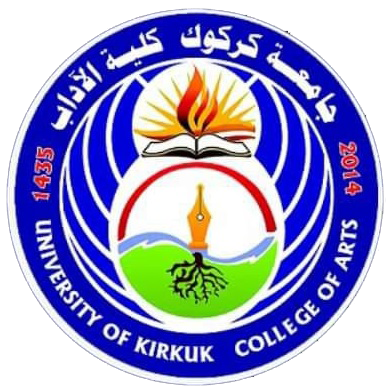Today, Monday, October 16, 2023, the College of Arts at Kirkuk University organized a scientific symposium entitled “Utilizing scientific and administrative capabilities to combat corruption,” with the participation of a number of faculty and administrative staff members at the college.
In his speech during the symposium, the Dean of the Faculty of Arts, Professor Dr. Omar Najm Al-Din Angeh, emphasized that corruption has several forms and forms depending on the surrounding environment and circumstances, including: Financial, administrative, social and economic corruption, all of which have effects on the individual in particular, and society in general.
Ince added that education has an effective role in combating corruption, by applying the teachings of the Islamic religion, preventing corruption of all kinds on university campuses, and reducing it, starting with its simplest types, such as cheating in exams, bribery, and peddling influence.
The symposium also included lectures by a number of professors and researchers at the college, which addressed the role of education in combating corruption, the most notable of which are:
A lecture delivered by the Dean of the College entitled “Money between the right holder and the opponent.”
A lecture delivered by Dr. Salwa Girgis Salman entitled “Utilizing literary texts to promote a culture of integrity and combating corruption.”
Dr. Ahmed Fateh’s lecture entitled “Corruption and corruptors and the Holy Qur’an’s talk about them.”
A lecture delivered by Dr. Evan Fahmi Hamid entitled “The preventive role of higher education institutions in reducing corruption.”
At the conclusion of the symposium, I came up with a set of recommendations, including:
- Encouraging students to read heritage books to derive faith values, especially moral values.
- Activating the role of school and university theater to emphasize the sense of citizenship and positive ethics and reject corruption.
- Holding a symposium or conference to study the role of literary texts in promoting a culture of integrity and combating corruption.
The symposium aims to shed light on the role of education in combating corruption and promoting a culture of integrity among students and workers in educational institutions.


In his speech during the symposium, the Dean of the Faculty of Arts, Professor Dr. Omar Najm Al-Din Angeh, emphasized that corruption has several forms and forms depending on the surrounding environment and circumstances, including: Financial, administrative, social and economic corruption, all of which have effects on the individual in particular, and society in general.
Ince added that education has an effective role in combating corruption, by applying the teachings of the Islamic religion, preventing corruption of all kinds on university campuses, and reducing it, starting with its simplest types, such as cheating in exams, bribery, and peddling influence.
The symposium also included lectures by a number of professors and researchers at the college, which addressed the role of education in combating corruption, the most notable of which are:
A lecture delivered by the Dean of the College entitled “Money between the right holder and the opponent.”
A lecture delivered by Dr. Salwa Girgis Salman entitled “Utilizing literary texts to promote a culture of integrity and combating corruption.”
Dr. Ahmed Fateh’s lecture entitled “Corruption and corruptors and the Holy Qur’an’s talk about them.”
A lecture delivered by Dr. Evan Fahmi Hamid entitled “The preventive role of higher education institutions in reducing corruption.”
At the conclusion of the symposium, I came up with a set of recommendations, including:
- Encouraging students to read heritage books to derive faith values, especially moral values.
- Activating the role of school and university theater to emphasize the sense of citizenship and positive ethics and reject corruption.
- Holding a symposium or conference to study the role of literary texts in promoting a culture of integrity and combating corruption.
The symposium aims to shed light on the role of education in combating corruption and promoting a culture of integrity among students and workers in educational institutions.


 College of Arts - University of Kirkuk
College of Arts - University of Kirkuk 


